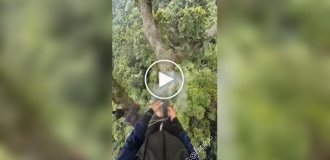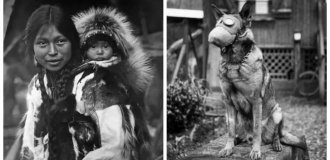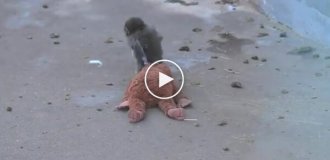Children who were considered dead spent almost a year and a half on a desert island (10 photos)
Sometimes life brings such surprises that even the most talented author cannot come up with. 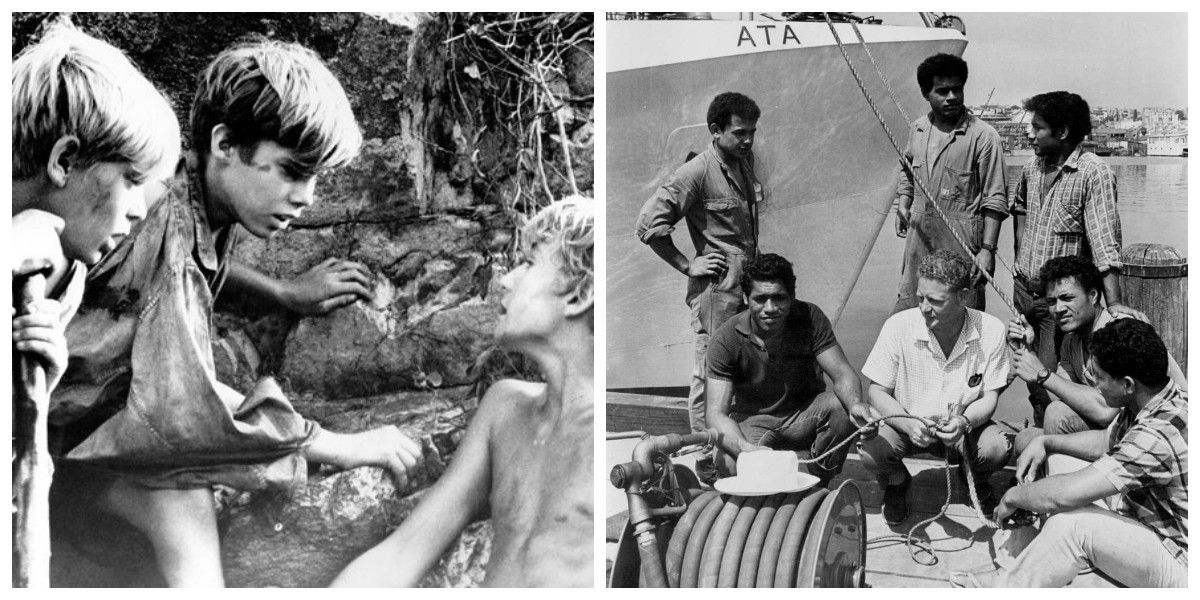
Surely many have read the novel, which is a classic of the world literature. It's about "Lord of the Flies" written by William Golding and published in 1954. 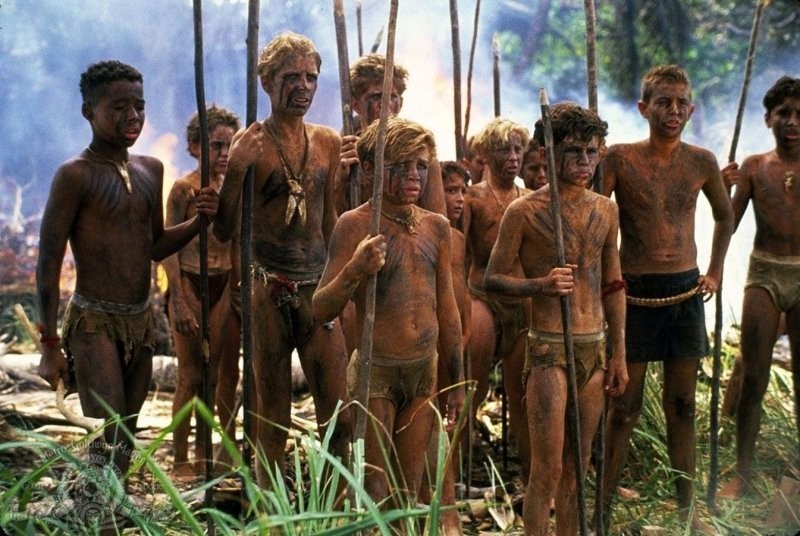
Shot from the film "Lord of the Flies"
And 11 years later, ordinary Polynesian teenagers. But they showed much more wisdom and cohesion than the heroes of the above novel. 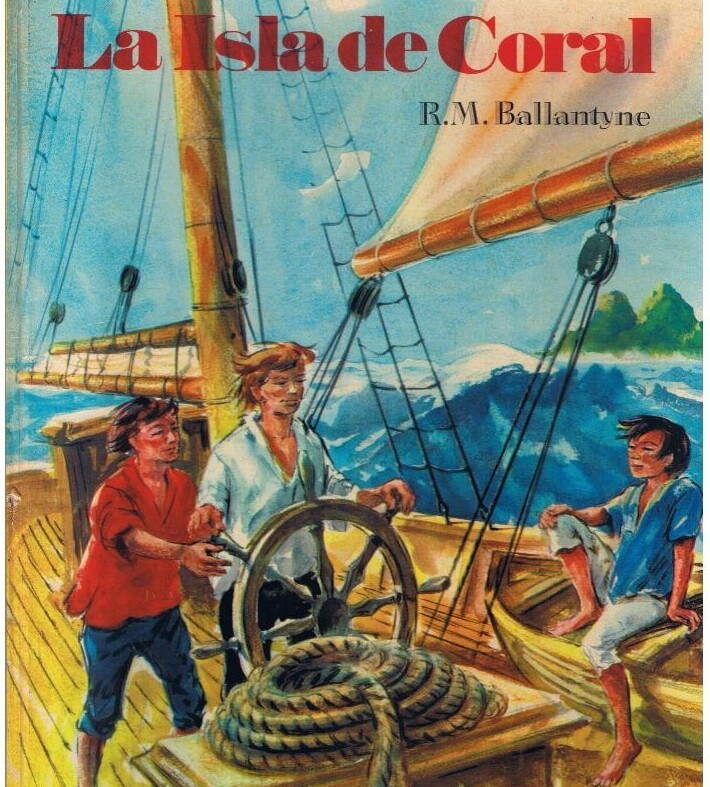
Golding himself admitted that his work was a response to Robert Ballantyne's Coral Island, written in 1857. AT her boys also end up on a desert island. And from that moment on their adventure begins. Golding filed his version with the result shipwreck and focused on conflict and relationships. And while the critics argued whose work is more realistic, life is all put it in its place: a real collapse has already happened. 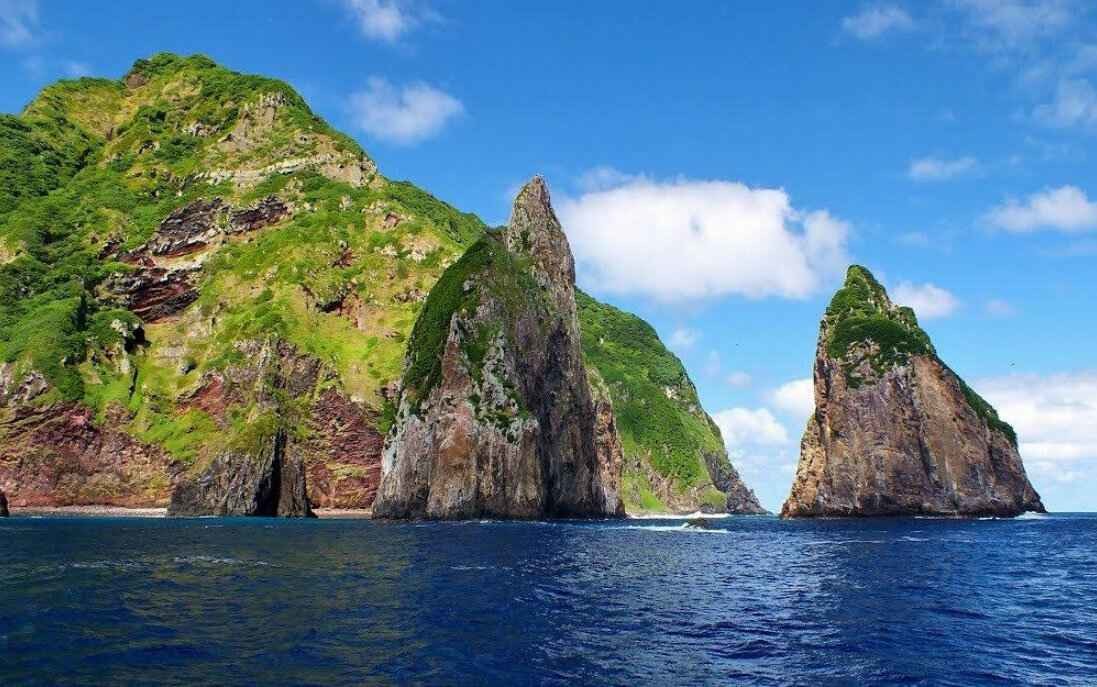
Ata Island
Boys aged 14-16 from a Polynesian island kingdoms of Tonga decided to go on an adventure and the unknown the world. Six teenagers sneaked out of the boarding school, took away the boat, which the son of a fisherman, who knew a little about navigation, undertook to manage.
But the guys were fatally unlucky: a storm broke out at night, sail blown away by the wind, and they drifted for more than a week on the high seas, until reached the rocky coast of the island of Ata.
15 months spent here guys, whose names were Steven, Zion, David, Colo, Luke and Mano. Certainly they were better prepared for life than European peers from the book. But still with The boys faced many difficulties and problems for the first time. AT including the problem of building intra-group relationships. 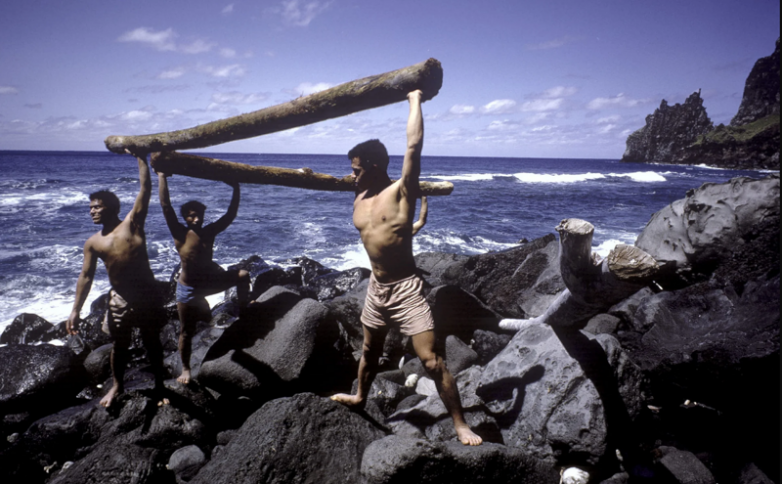
Frame from a documentary film-reenactment
The castaways chose a leader and outlined three main tasks for every day: get food, have fun (since they broke away from adults) and give smoke signals. With food, as with fresh water was a problem. For the first weeks, the group ate raw fish and bird eggs.
Then the guys explored the island and found on the top rocks are the remains of a settlement where fruit trees grew in abundance and feral chickens roamed, freely living here for several decades after the people left the settlement.
The boys moved into the hut and patched it up as best they could. They equipped troughs to collect rainwater for drinking, although it was negligible. An attempt to build a raft was unsuccessful.
But what about pleasure? 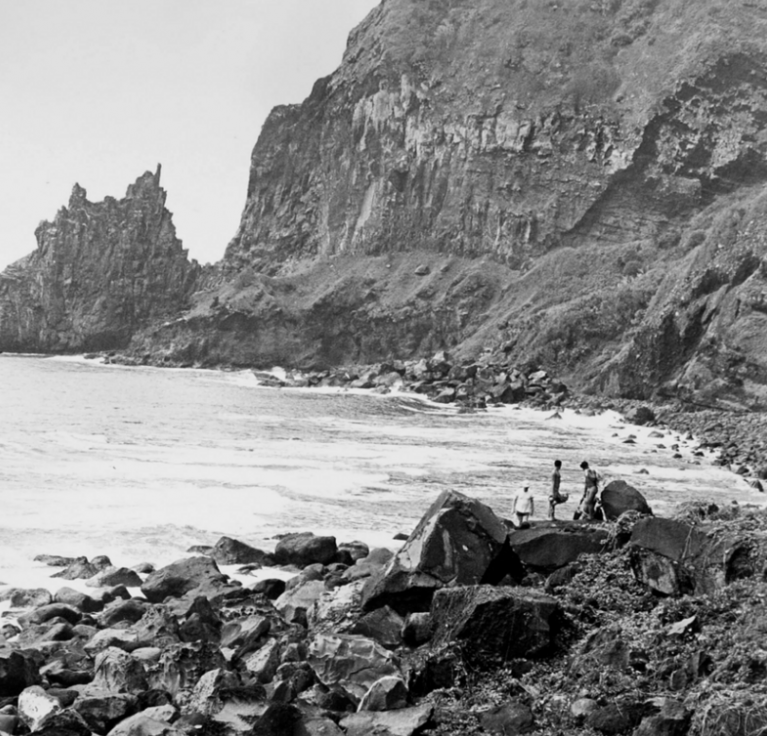
Frame from a documentary film-reenactment
The areas of responsibility in the group were strictly divided: two watched the fire in the hearth, two got food, two cultivated crops and took care of the chickens. Mano recalled that it took them as many as three months to strike a spark and make a flame. So keeping the fire going it was a matter of almost vital necessity.
If someone was sick, then others did his work. boys quickly realized that conflicts would only weaken the group. And accepted the common the decision to disperse during a quarrel in different directions and wait until emotions subside.
One of them misstepped and broke his leg. Friends moved the victim to the house, put a splint, took turns looking after. After the rescue doctors were amazed at how well and without complications the fracture healed.
But one should not forget about the pleasures either: there was an agreement, and the castaways remained, in fact, half children. That's why had fun with great pleasure: they built an impromptu sports ground, swing, badminton court.
The guys prayed every morning and sang songs with a guitar. Tool built one of them using driftwood, coconut shells and ropes from boats. The elders conducted impromptu lessons for the younger ones, exercising in calligraphy and solving examples right in the sand.
Hooray for the resurrected... criminals?! 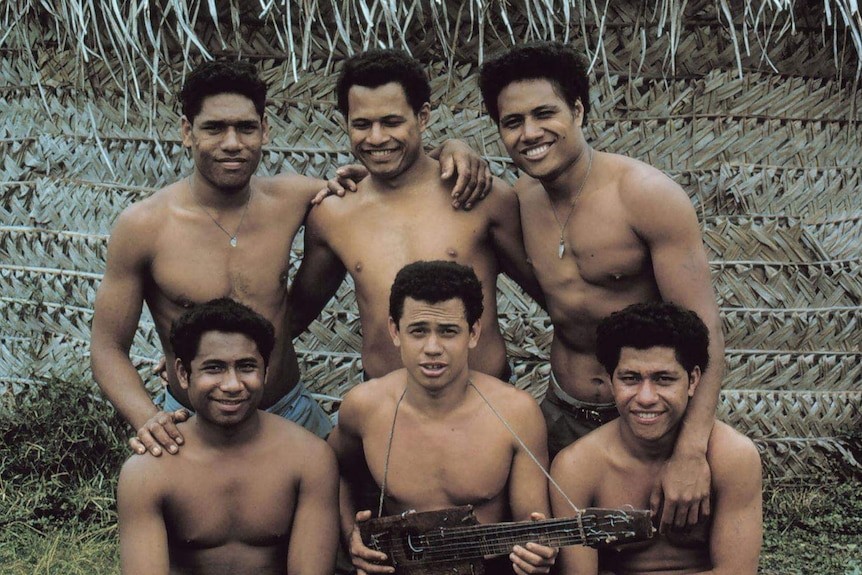
When the fisherman discovered the boat was missing, he reported it to the police. The administration of the boarding school understoodthat the missing students were involved in this. They were declared dead and even held a symbolic funeral ceremony.
September 11, 1966 to the island for the first time in a long time the ship arrived. The ship was driven by Peter Warner - the son of one of the richest Australians. What was his surprise when he noticed through binoculars teenagers floating towards the ship. 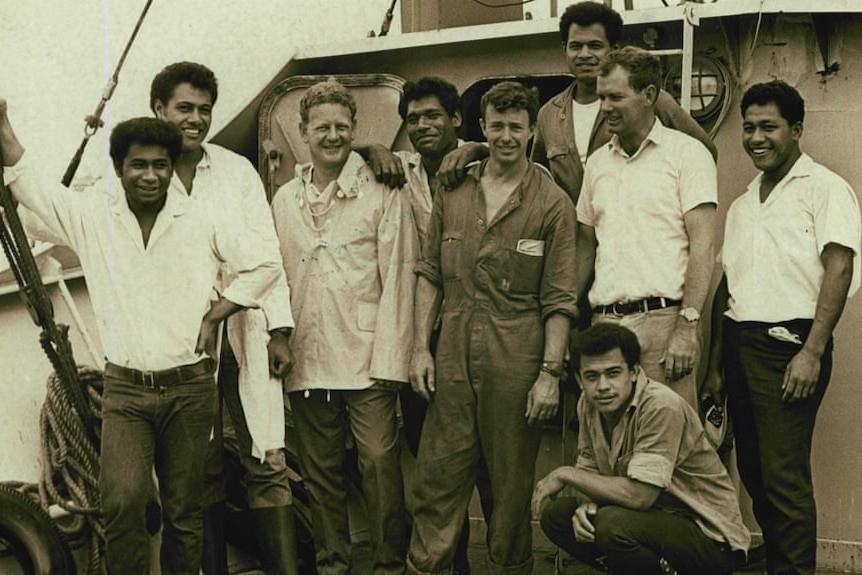
Peter is third from the left
Warner took the guys on board and contacted the dispatcher by radio. A quarter of an hour later, he shouted with delight, which had just happened a miracle, because these boys had been considered dead for 15 months.
To greet yesterday's dead, almost the entire native island. But in addition to the joy of miraculous salvation, punishment awaited them: the fisherman was not going to forgive the loss of the boat. Poor families had no money for reimbursement. And the guys were taken into custody.
Peter intervened again, who by that time had become a TV star and national hero. He contacted representatives of the Australian channel 7 and offered them the exclusive rights to film stories. The fee was used to pay compensation for the boat. 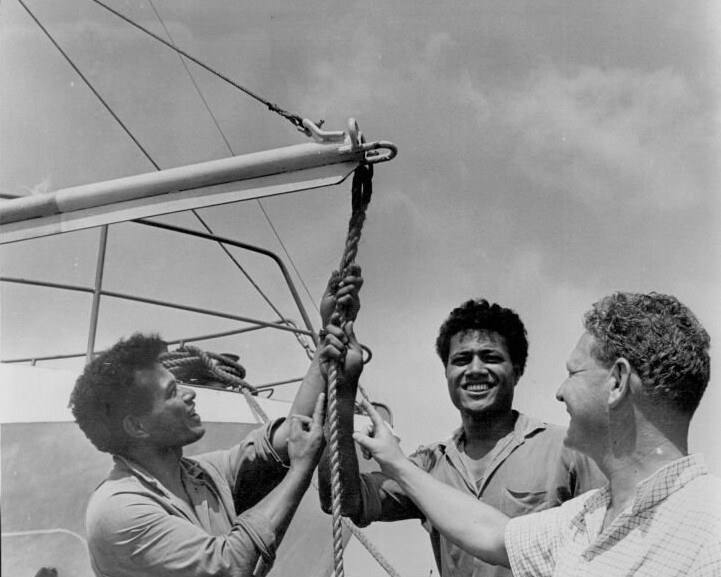
It is noteworthy that the man also subsequently took all six to his ship by sailors. Warner opened a business in the Kingdom of Tonga lobster fishing and moved here with his family. 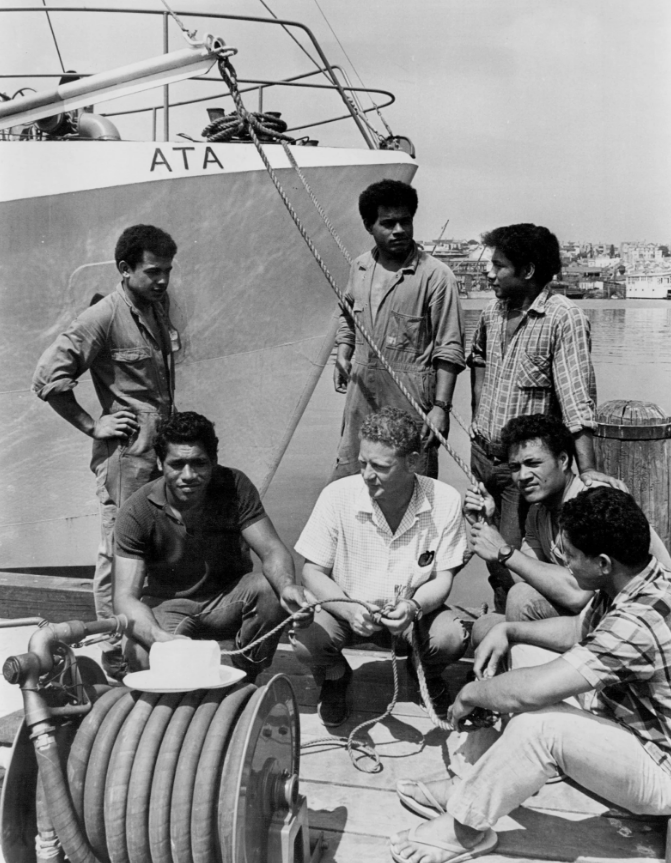
A documentary film was made about the misadventures of teenagers. Many moments about the lives of boys miraculously surviving and surviving in difficult conditions became known from an interview with Mano - one of them and an autobiography Warner, released in 2019. This case clearly showed that no knowledge and practical skills are not superfluous in life, and the ability negotiating sometimes helps save lives.
